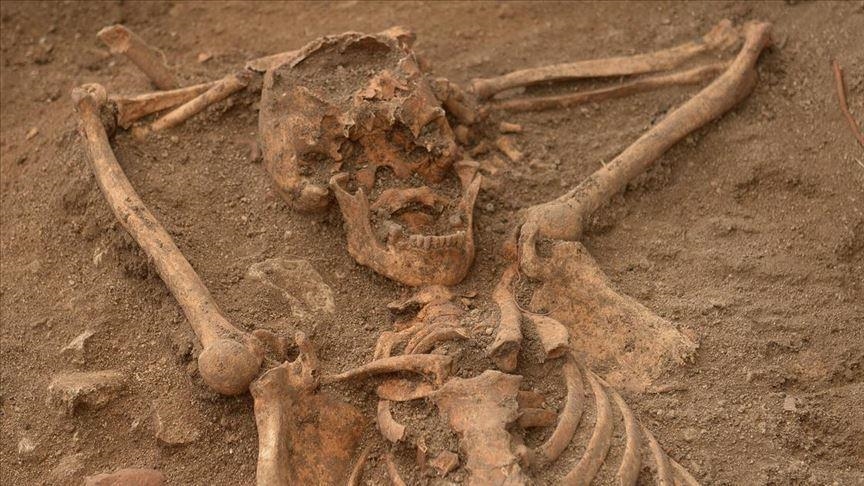Rwanda: 27 years later genocide perpetrators still at large
Activists say many suspects are avoiding noose of law by taking refuge in west, besides in neighboring African countries

KIGALI, Rwanda
Even 27 years after the world witnessed one of the worst genocides in the landlocked country of Rwanda, many perpetrators remain unpunished.
On eve of its anniversary on Wednesday, Rwanda’s Genocide Fugitives Tracking Unit (GFTU) revealed that more than 1,000 suspects have taken refuge in different countries including France, the US, Netherlands, and Canada.
Between April 7 and July 15, 1994, an estimated one million people mainly Tutsi ethnic community and moderate Hutus were killed in 100 days.
Many genocide survivors such as Jonathan Sindikubwabo are now wondering whether justice will ever be served.
“Those who have the blood of our people on their hands must be held accountable. The countries that protect them must hand them over if they cannot prosecute them,” said Sindikubwabo.
Speaking to Anadolu Agency, Jean-Bosco Siboyintore, the head of Genocide Fugitives Tracking Unit charged that countries have been unable to prosecute or handover the suspects to Rwanda due to lack of political will.
“There is a lack of political will whereby you find some people who are supposed to enforce the indictments are not supportive or are not attaching any value yet genocide is an international crime,” he said.
Of the 1,100 genocide fugitives still at large, majority 408 are in the neighboring Democratic Republic of the Congo, 277 in Uganda; 63 in Malawi, 15 in Burundi, 52 in Tanzania, 47 in France, 42 in Congo Brazzaville, and 40 are in Belgium, according to the GFTU data.
Experts believe that there is little chance that authorities in DR Congo, Burundi, and Uganda will act, as the suspects are posting as nationals of those countries mingling freely with the Kinyarwanda linguistic community with whom they share the language.
Many have designated themselves as Congolese of Banyamulenge origin, Burundians and Ugandans of Bufumbira origin who speak the Kinyarwanda language.
False identities
“These fugitives live on false identities, moving on false nationalities and false names which poses a big challenge to track him,” said Siboyintore.
Other countries believed hosting the fugitives and thereby saving them from the noose of law include Kenya where 35 suspects are thought to be hiding. Among others, 23 are believed to be hiding in the US, 18 in the Netherlands, and 14 in Canada.
While Rwandan prosecution has been working with Africa’s Prosecutors’ Association to track these fugitives, the absence of extradition treaties with some countries is partly making their job difficult.
Rwanda has so far signed extradition treaties with 10 countries, out of 30, where suspects are believed to be hiding.
Siboyintore said his organization has prepared prima facia evidence that can be tested. According to the procedure that leads to the indictment, the host states are invited to visit the crime scene in Rwanda to conduct their investigation.
He said the undue long procedures have led to the assumption that justice will elude victims and there looks no closure of cases. He further said that in absence of a digital identification system, it is becoming difficult to identify culprits in African countries.
“Some of the suspects have become nationalized citizens in the host countries, where they sought refuge. Some countries do not have laws to punish the crime of genocide,” Siboyintore said.
Rwanda’s traditional conflict resolution mechanism Gacaca which completed its work in 2012, tried nearly 2 million suspects within 10 years.
The International Criminal Tribunal for Rwanda (ICTR) set up in November 1994 worked in Arusha, Tanzania and sentenced 61 people up to life imprisonment for their roles in the massacres. It also acquitted 14 people, while 10 others were referred to national courts.
Anadolu Agency website contains only a portion of the news stories offered to subscribers in the AA News Broadcasting System (HAS), and in summarized form. Please contact us for subscription options.




